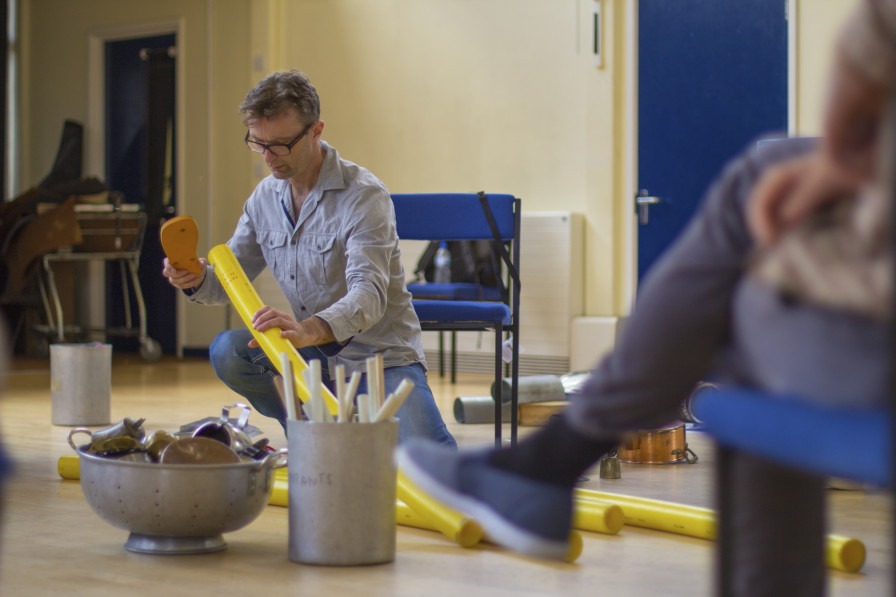Spinning Plates

Following the second session of his family music course at Stevenage Music Centre, Mark Howe discusses the importance of allowing some room in your session plan for a bit of spontaneous, authentic human interaction.
This week was the second session of a family junk percussion course I’m running at Stevenage Music Centre for MusicNet East. To recap, there are 27 people on the course made up of 8-10 adults and young people ranging in age from 4 to 12 and the sessions aim to introduce a range of sound objects, rescued and conventional instruments providing an opportunity for the family members to play, learn from each other, engage with others and learn through fun and doing.
Having run many such courses my experience is that, even with relatively short sessions durations such as this, there is a lot going on. There is much to remember, mental notes to be taken, the unexpected to be absorbed, promises to be kept, opportunities to be taken…stuff to do! To stay calm, relaxed, approachable, balanced and so on in the midst of this is something that I find an ongoing challenge and an interesting dimension of the practice.
This week I want to start with the junk drum kit, build on the previous week, revisit a couple of ideas, spin some metal plates, introduce the Djembes, work on the Morchestra. I'm expecting some people to bring their own instruments as a result of a discussion and agreement the previous week so the session begins by meeting first arrivals in the lobby and finding out what they have brought along.
A cello, guitar, pot drums, recorders, Kosovan ciftelia and tambour, several homemade instruments including a plastic sword with elastic bands between the cross guard and pommel (we thought it might be called a swarp) and various other bits and bobs including a small fairly rigid box not much bigger than a matchbox, with five or six elastic hairbands squeezed around it - almost inaudible unless held directly against the ear lobe!
So, thinking about it now, pondering as one does, the standout moment of this week was those little interactions in the lobby, making direct and straightforward contact with each young person and adult, spending a bit of time finding out what it is they have brought, asking questions, finding out new things, getting to know people.
This process continues as we slowly move in to the auditorium, and as new people arrive mostly clutching something or other, it feels important to acknowledge each of these and where possible to hear what they can do.
Then of course there is the session to run; all sorts of plates to be spun, drums to be danced, barrels to be sounded… the plan, a combination of material review, new things, negotiated activity and stuff I know works, as well as a promise to combine all these visiting instruments at the end which I remember in the nick of time!
So, in the midst of the activity and the strong and habitual impulse to ‘do’ there is always the very simple stuff of authentic human interaction, acknowledgement, listening, respect and noticing that help us all feel included and, in those moments, the opportunity to learn, inspire, motivate, relate, laugh, share and invent.
